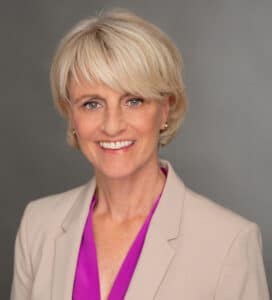As a financial planner, Carolyn McClanahan makes sure her retired clients have health insurance, but she’s seen plenty of misfortune among retirees who lacked coverage. That’s because before she founded Life Planning Partners in Jacksonville, Fla., 20 years ago, McClanahan worked as a physician.

“In my former profession, I was an emergency room doctor, and invariably we’d get the 62-year-old who just retired and took Social Security but didn’t get health insurance because they thought they’d be fine for the three years to go until Medicare,” says McClanahan, who holds both M.D. and CFP designations. “And then they’d have a heart attack and need a $100,000 bypass.”
“People say, ‘Well, doesn’t the hospital have to treat them?’ They have to stabilize them, but they’re not required to treat them after they’re stabilized,” she adds.
There’s a real danger that those who retire before reaching the Medicare eligibility age of 65 can end up in such a situation. Research shows that many individuals retire earlier than they had planned, often not by choice.
Retirement Often Starts Sooner Than Planned
A recent study by the TransAmerica Center for Retirement Studies found that 58% of retirements occur before age 65, and that the median retirement age is 62. That’s in stark contrast to preretirement expectations. Among workers 50 and older, 66% expect to retire after age 65, and the median expected retirement age is 67. Furthermore, 33% of workers expect to retire at 70 or older, or not at all, but only 6% of retirees report this was the case.
Overall, the study found that 46% of retirees leave the work force earlier than they expected. Many who retired earlier than planned did so because of a hardship, such as a health problem or disability (35%) or because of changes at their company (31%).
Additional Reading: How Much Must Retirees Save for Healthcare?
Additionally, a recent report from the Congressional Research Service found that 45% of Social Security recipients start taking benefits before age 65, and 29% begin at 62, the earliest age for the regular retirement benefit.
Clearly, a worrying health insurance gap looms for many early retirees. A recent survey by KFF, the former Kaiser Family Foundation, found that unexpected medical bills and healthcare costs top the public’s list of financial concerns. Among those surveyed, 74% worry about being able to afford unexpected medical bills and 73% express concern about the cost of healthcare services. That’s more than those who say the same about other everyday expenses, such as gas, utilities, food, and housing costs.
Two Common Options Have Drawbacks
Early retirees have two basic insurance options, COBRA and Affordable Care Act plans, or Obamacare, McClanahan says. COBRA allows employees to continue their company-provided health insurance plan for 18 months after severance. But without the employer contribution, it’s expensive, she notes. ACA plans can be a lot less expensive, but the tradeoff can be astronomical deductibles, McClanahan says.
For a worker who faces imminent and unexpected early retirement, speedy planning and preparation is essential, she advises.
“As soon as you know that you may not continue working and that you’re not yet Medicare age, start thinking about your health insurance coverage, because you can do a lot of preplanning to save money,” she says.
The soon-to-be retiree should first assess the state of their health and how much they use health insurance. “If you’re a healthy person and you never go to the doctor and you don’t anticipate going to the doctor a lot, it’s probably cheaper to get a bare-bones ACA — Affordable Care Act — plan,” she advises. Those with greater healthcare needs may need to find other options.
Unretiring May be the Best Choice
For those who need more coverage than is affordable to them through Obamacare, McClanahan says unretiring may be the best option. Finding employment with a company that provides decent health insurance could be the best bet until Medicare becomes available, she says.
“If you do go to the doctor a lot, or you have significant health problems, or you’re on expensive medicines, group health coverage is usually much better bang for the buck,” she says of the employer-provided health insurance option.
Planning and Self-Advocating is Critical
Another step for the soon-to-be severed employee is loading up on services available through the employer’s health insurance before it goes away.
“What I suggest to people is, before you retire, go get all your checkups done, go get all your medication filled, and get as many refills as you can, because that’ll let you buy time until you establish with your new insurance,” McClanahan says, noting that new retirees could face a period without health insurance.
A company has 22 days after severance before it must offer COBRA coverage, during which time the former employee is technically uninsured, she says. “The COBRA will backdate, but if you go to the doctor five days after you parted service, they’re going to call up your insurance, and the insurance says you’re not insured. They’re not going to see you.”
Getting an ACA plan also takes time, she notes, adding that anyone who goes on Obamacare should work with a financial planner or an accountant to plan their income and maximize their healthcare tax credit.
“One thing that people need to think about is, what can they control? So, it’s very important for people to learn how to be good healthcare consumers,” she says. “You need to learn how to be an empowered patient and make sure that all the stuff that your doctor wants to do is really necessary and that you’re approaching your healthcare in the most cost-effective way, it’s meeting your values and your goals.”
Employers Dropping Retiree Coverage
McClanahan noted two options that may be available to some individuals: employer-provided retiree health insurance, and medical cost-sharing plans offered by some churches and faith communities.
Employer-provided retiree health insurance is a vanishing breed offered by a dwindling number of companies. A 2023 KFF survey found that among large employers (those with 200 or more employees) 21% still offered such a plan, down from 29% in 2020 and 66% in 1988.
McClanahan noted that medical cost-sharing plans are not real insurance and come with the risk that the organization will decline to cover a medical expense. An individual who is denied coverage can sign up for an ACA plan during the annual enrollment period, McClanahan says, but she adds a warning. “God forbid you have something horrible happen between qualifying for open enrollment and going on [it]. … Then you’re messed over until you can go on real insurance.”
ACA Is Better Than Nothing, But…
McClanahan is grateful for the ACA but says it is deeply flawed.
“The Affordable Care Act is way, way better than what we had before the Affordable Care Act, which was nothing,” she says.
“The one thing that the Affordable Care Act did not do is have good ways to rein in healthcare costs,” she says, noting that deductibles and copays are “though the roof.”
“People are still struggling quite a bit, and we need to have bigger fixes around healthcare,” McClanahan says.
Calling the ACA a “boondoggle for insurance companies” in need of reform, she adds, “I don’t think that’s going to happen anytime soon.”
In a four-decade career in journalism, Ed Prince has served as an editor with many of New Jersey’s leading newspapers, including the Star-Ledger, Asbury Park Press and Home News Tribune.







